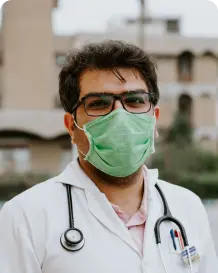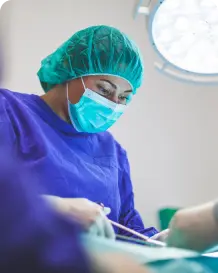The treatment of kidney stones depends on several factors, including the size, location, composition of the stones, severity of symptoms, and the presence of any complications. The primary goals of treatment are to relieve symptoms, promote the passage or removal of the stones, prevent recurrence, and manage any associated complications. Here are the common treatment approaches for kidney stones:
Observation and Symptom Management:
Small kidney stones that are not causing severe symptoms may be managed conservatively. This approach involves drinking plenty of fluids to increase urine output and facilitate the natural passage of the stone. Pain medication, such as nonsteroidal anti-inflammatory drugs (NSAIDs), may be prescribed to manage pain during the stone's passage.
Pain Medications
If the pain caused by kidney stones is severe, stronger pain medications, including opioids, may be prescribed for a limited period.
Alpha Blockers:
These medications help relax the muscles in the ureter, facilitating the passage of stones by widening the urinary tract and reducing pain.
Extracorporeal Shock Wave Lithotripsy (ESWL):
This non-invasive procedure uses shock waves to break kidney stones into smaller pieces, making them easier to pass through the urinary tract. ESWL is typically used for smaller stones that are located in the kidney or upper ureter.
Ureteroscopy
This procedure involves the insertion of a thin tube (ureteroscope) through the urethra and bladder to reach the ureter or kidney. Small stones can be directly visualized and removed or fragmented using laser energy. Ureteroscopy is effective for stones located in the ureter or kidney.
Percutaneous Nephrolithotomy (PCNL):
For larger stones or those that are difficult to treat with other methods, PCNL may be performed. It involves making a small incision in the back and using a nephroscope to directly access and remove or break up the stones in the kidney.
Surgical Removal:
In some cases, open surgery (nephrolithotomy) may be necessary if other treatment options are not feasible or effective. This invasive procedure involves making an incision in the back to access the kidney and remove the stones.
Prevention and Lifestyle Modifications:
After the stone is treated or passed, healthcare providers may recommend lifestyle changes to prevent future stone formation. This may include increasing fluid intake, adopting a balanced diet with controlled sodium and protein intake, reducing oxalate-rich foods, and managing underlying conditions contributing to stone formation.
The choice of treatment depends on individual circumstances and should be made in consultation with a healthcare professional experienced in managing kidney stones. They will consider various factors to determine the most suitable treatment approach to alleviate symptoms, promote stone passage, and prevent recurrence.
 50+
50+







